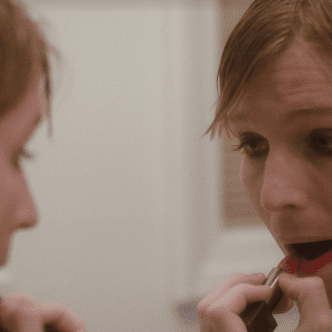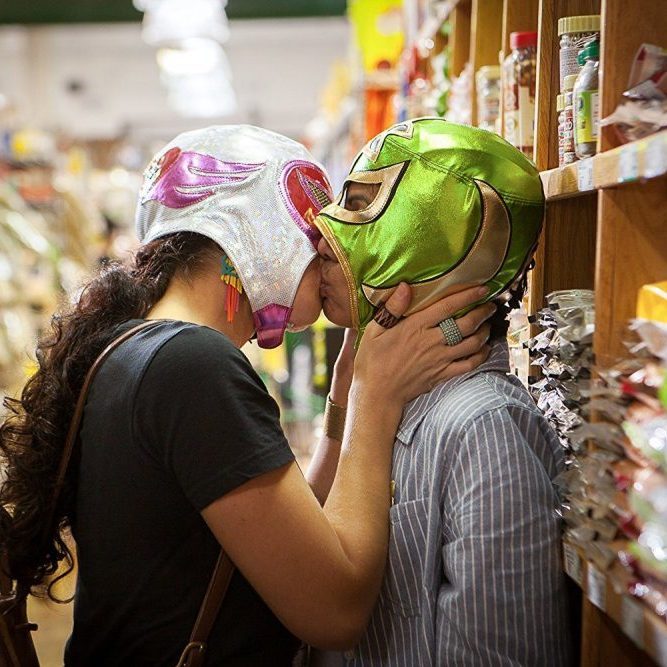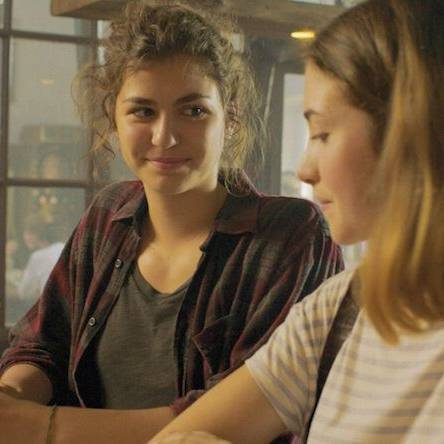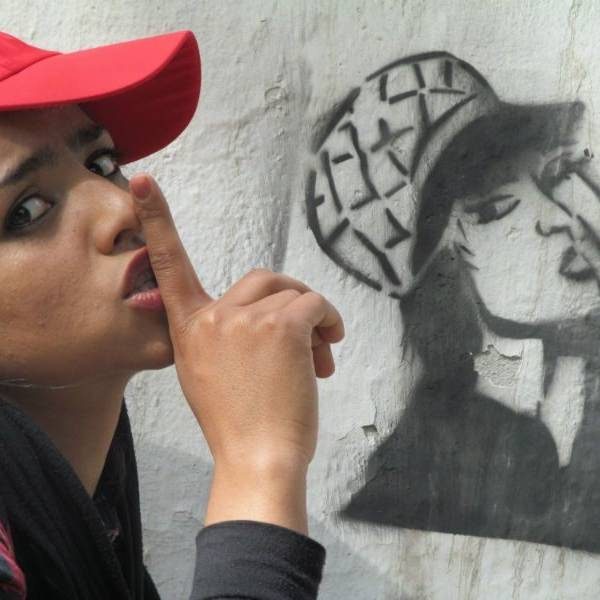We run through SFF’s queer offerings for 2017: still not enough lesbians, but it isdefinitely progress!
Cinema is a medium that is inherently queer-friendly. In fact, it’s not only queer-friendly; it is queer-enabling. The very act of splicing different – sometimes seemingly opposite – frames together to form a body that is both continuous and constructed, metamorphic and stable, is intrinsically queer. Further, it is indisputable that queer representation in popular media like cinema benefits the mental health of queer individuals: we all feel less despondent and alone when we know that there are others out there like us.
As this is the case, the amount of queer films that grace the screens of mainstream cinemas is bracingly disappointing. While 2017 has already been a landmark year for LGBT film at the highest level of institutional praise, thanks to Moonlight’s Oscars win, this queer representation is still more of a cinematic outlier than anything else. Last year, GLAAD’s fourth annual Studio Responsibility Index found that complex, meaningful LGBT representation in mainstream Hollywood films had decreased by 19 percent from the previous year. This figure was arrived at using the Vito Russo Test, a kind of queer equivalent of the now infamous Bechdel test.
For this reason, we often must look to non-mainstream, independent cinema to pick up the slack. With less funding comes less commercial responsibility to big production companies that are hesitant to give airtime to LGBT characters.
As such, it is very exciting to announce that this year’s Sydney Film Festival will be screening not one, but seven, overtly queer films. That’s right – not just subtext, not just hidden glances between ‘gal pals,’ but actually LGBTI+ people doing actually queer things. That’s seven out of approximately 250 films being shown at this year’s festival, but hey, progress.
Here, we’ve compiled a list of the queer films that will tickle your queer tastebuds at this year’s Festival:
Chavela
Inspired by exclusive interview and performance footage of legendary Costa-Rican born Mexican singer Chavela Vargas shot in 1991, this doco, directed by Emmy-nominated producer Catherine Gund (Making Grace) and director-producer Daresha Kyi (Most Daring), is a loving tribute to a woman who simply would not obey the rules. Vargas rocked a singularly androgynous look, complete with ponchos, pants, and penetrating stare, in a culture that was definitely not down with unfeminine women. The film follows her life, from her supposed affair with Frida Kahlo, to her alcohol-fuelled tours, to her late-in-life Shamanism. Vargas became a queer icon long before she publicly identified as a lesbian at age 81, and dedicated her songs to ‘every woman’ all throughout her career. What a legend.
A Fantastic Woman
Despite the amount of press attention the transgender rights movement has been garnering since Caitlyn Jenner’s transition made the issue gossip mag fodder, real depictions of real transgender people in film and television are still relatively few and far between. Excitingly, this feature, by award-winning Chilean director and writer Sebastián Lelio, stars first-time transgender performer Daniela Varga, in what the Hollywood Reporter has called a “truly remarkable” performance, as singer Marina Vidal. The film directs its gaze to the suspicious and cruel way in which Marina is treated in the wake of her older partner’s death, but does not stoop to didacticism. Marina is transgender, but that is not her story. If the brilliance of Lelio’s last film, Gloria, is anything to go by, this will be a Festival stand-out.
Desperate Living
First, to clarify: this is not a new film. This John Waters comedy debuted in 1977, and is being screened at SFF 2017 as part of ‘Smash it Up: Celebrating 40 Years of Punk Rock 1977 – 2017.’ The film is a cult classic, widely known for its controversial depiction of lesbian relationships and for its truly bizarre plot and aesthetic. There’s lesbian prison sex, murder, a town where citizens are forced to walk backwards, vaginal gunshot wounds, and a corpse cooked up for a celebratory feast. It is John Waters at his weirdest. Much like the impossibility of walking into ALDI actually knowing what might be on offer that day, viewers must enter this film completely open to the possibility of, well, anything. You might enter ALDI in search of tomatoes, and leave with a pair of tennis shoes. This is the filmic equivalent of that.
Pulse
This independent Australian debut feature from WA female director Stevie Cruz-Martin has gotten a fair bit of mostly positive attention in recent months. It was the headliner at Melbourne Queer Film Festival 2017, and was met with a very receptive audience. The film tells the story of a gay disabled teen boy who changes into the body of a woman, hoping that those he desires will love him. The story is a personal one for screenwriter, lead actor, editor and producer Daniel Monks, who himself has a disability, and wrote the film at age 20. Press kits for the film profess that it “explores thematic questions of how our bodies shape who we are, and where the line is between compromising and changing yourself to be loved.” Queer rights and disability activist JaxJacki Brown expressed a very different interpretation after seeing the film, writing on her blog, “To say that it is ableist is an understatement… I'm just so bone tired of seeing this narrative perpetuated over and over again of disability as this horrible tragedy, and of course you'd want to be normal and escape it if you could.” We’ll let you be the judge…
The Ornithologist
With his fifth feature film, it seems that Portuguese arthouse filmmaker João Pedro Rodrigues has a counter to Bono’s depressing drawl – Rodrigues certainly has found what he is looking for, literally. This distinctly experimental, visually opulent film is a queer adaption of the story of Saint Anthony of Padua, the patron saint of finding lost things. It tells the story of an ornithologist, Fernando (Paul Hamy), who inexplicably turns into a revered Catholic saint after being left unconscious in the wilderness. Along the way, a bunch of bizarre stuff happens: Fernando makes love to a shepherd named Jesus on a riverbank, sees semi-demonic creatures, and then finds Jesus’ twin brother Anthony – meanwhile Hamy’s Fernando has been replaced by director Rodrigue’ iteration. It’s a rollicking ride. Jay Weissberg at Variety says, “Rodrigues’ ability to play with religious tales and make them deliriously different yet personally meaningful (even if opaque to some) makes him one of the top standard bearers of queer cinema.”
The Wound
Director John Trengove here tells the story of Xolani, a lonely factory worker in urban South Africa, who travels to the rural mountains with the men of his community to initiate a group of boys into manhood. The kicker here is that Xolandi is gay. When his sexuality is revealed, his entire existence begins to unravel. It is a safe assumption to make that the ‘wound’ in the film’s title is both literal and metaphorical. This is a strong but hard look at how toxic masculinity and sexual repression find their violent way into the world, interlinking the personal and the communal until it can be difficult to untether the one from the other. Trengove is white, which poses some interesting questions in terms of racial representation, but he has clearly done a lot of research. Decide for yourself if this justifies his choice of subject matter, or adds a productive angle, or if it is simply another case of minorities’ stories being told ‘for them’ by others.
God’s Own Country
Already being touted as “the British answer to Brokeback Mountain,” Francis Lee’s God’s Own Country has some big shoes to fill. The tale is as old as time…ish: a Yorkshire farmer (Josh O’Connor) develops an intense romantic relationship with a Romanian migrant worker (Alec Secareanu) during spring lambing season. While the much-told narrative of the sensuous European teaching the frigid Brit how to love could easily slip into cliché, Variety critic Guy Lodge emphasizes the film’s timely political progressiveness, saying, “God’s Own Country normalizes its characters’ love without a hint of sentimentality or sanctimony. Likewise, the film rousingly stands for the status and contributions of immigrants in the U.K. without recourse to political rhetoric.” The intersection between queerness and nationhood is often fraught, particularly as queer people from persecuted minorities (in this case, post-Brexit refugees and migrants) face a double bind of societal exclusion. We can’t wait to give this one a watch.
As we’re sure you’ll notice, more of these films involve gay male characters than gay female characters. We have not seen every film in the festival’s line-up, so it is possible that some lady-loving might have escaped our notice, but after carefully trawling the line-up, reading early reviews, and cross-referencing these with the list of ‘LGBT films’ provided to us by the Festival itself, it appears that only three films out of the festival’s 250 films will represent queer women. That is not ideal.
While we celebrate all queer visibility, the dearth of lesbian filmic representation compared to gay male representation signifies a broader problem: women are less represented than men. Queer solidarity is super important, but we cannot ignore the fact that, despite the disadvantages queerness imposes on all queer people in our heteronormative society, queer men benefit from patriarchy and from the glorification of maleness that that entails.
We need to see more queer women in film – that’s that.






